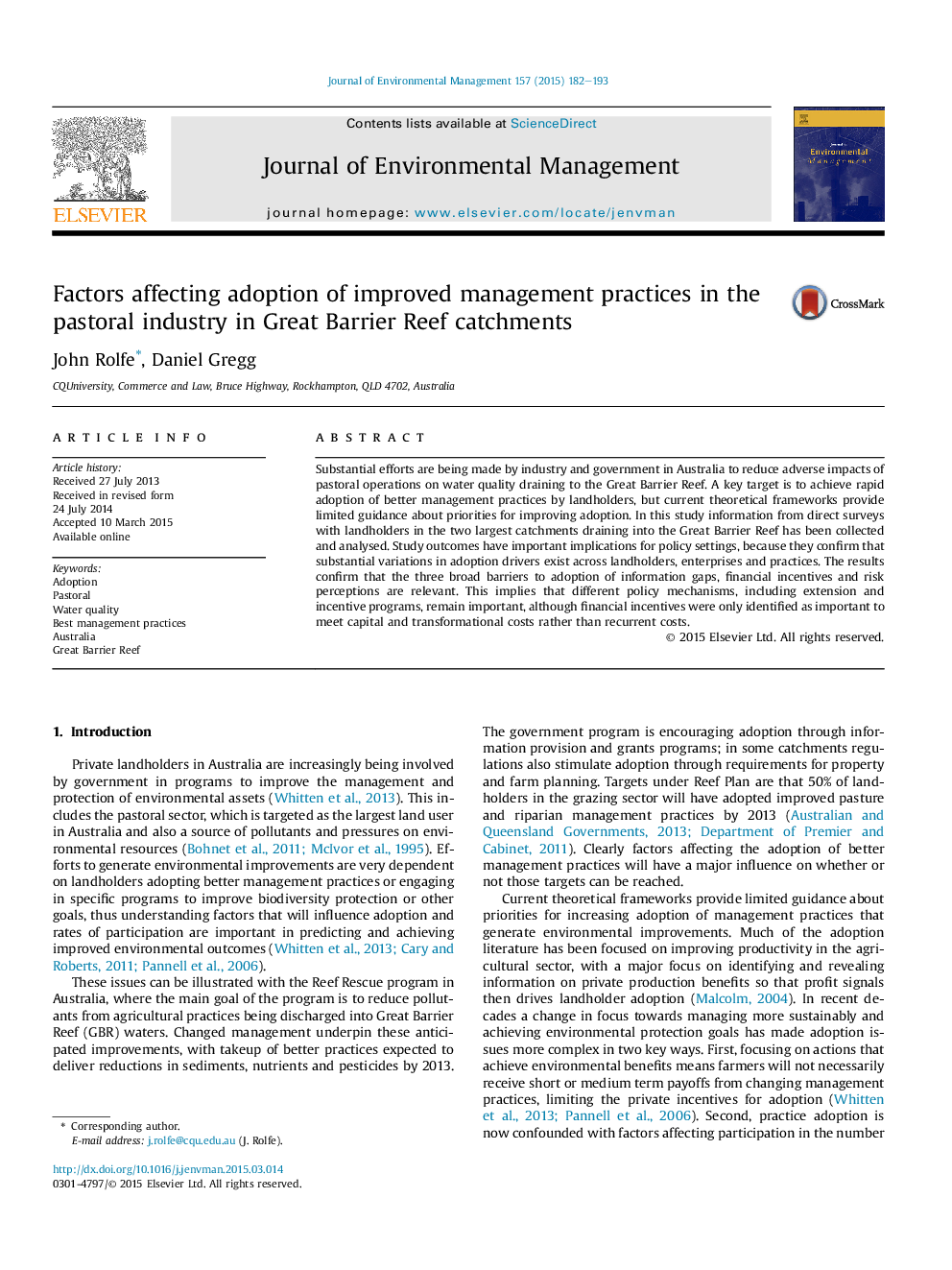| Article ID | Journal | Published Year | Pages | File Type |
|---|---|---|---|---|
| 7482230 | Journal of Environmental Management | 2015 | 12 Pages |
Abstract
Substantial efforts are being made by industry and government in Australia to reduce adverse impacts of pastoral operations on water quality draining to the Great Barrier Reef. A key target is to achieve rapid adoption of better management practices by landholders, but current theoretical frameworks provide limited guidance about priorities for improving adoption. In this study information from direct surveys with landholders in the two largest catchments draining into the Great Barrier Reef has been collected and analysed. Study outcomes have important implications for policy settings, because they confirm that substantial variations in adoption drivers exist across landholders, enterprises and practices. The results confirm that the three broad barriers to adoption of information gaps, financial incentives and risk perceptions are relevant. This implies that different policy mechanisms, including extension and incentive programs, remain important, although financial incentives were only identified as important to meet capital and transformational costs rather than recurrent costs.
Related Topics
Physical Sciences and Engineering
Energy
Renewable Energy, Sustainability and the Environment
Authors
John Rolfe, Daniel Gregg,
